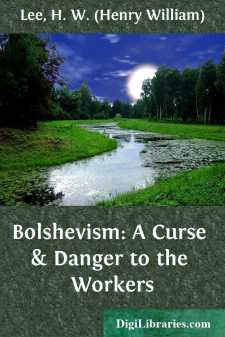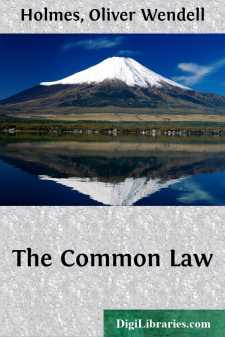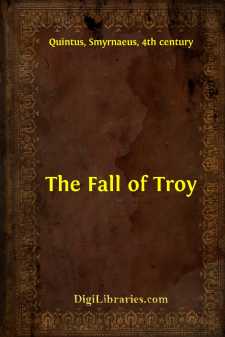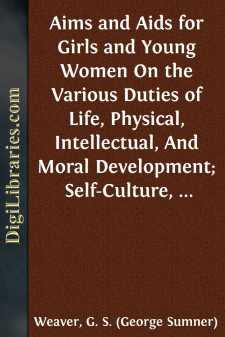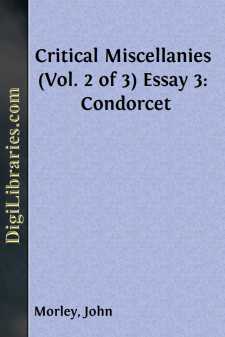Categories
- Antiques & Collectibles 13
- Architecture 36
- Art 48
- Bibles 22
- Biography & Autobiography 813
- Body, Mind & Spirit 142
- Business & Economics 28
- Children's Books 15
- Children's Fiction 12
- Computers 4
- Cooking 94
- Crafts & Hobbies 4
- Drama 346
- Education 46
- Family & Relationships 57
- Fiction 11828
- Games 19
- Gardening 17
- Health & Fitness 34
- History 1377
- House & Home 1
- Humor 147
- Juvenile Fiction 1873
- Juvenile Nonfiction 202
- Language Arts & Disciplines 88
- Law 16
- Literary Collections 686
- Literary Criticism 179
- Mathematics 13
- Medical 41
- Music 40
- Nature 179
- Non-Classifiable 1768
- Performing Arts 7
- Periodicals 1453
- Philosophy 64
- Photography 2
- Poetry 896
- Political Science 203
- Psychology 42
- Reference 154
- Religion 513
- Science 126
- Self-Help 84
- Social Science 81
- Sports & Recreation 34
- Study Aids 3
- Technology & Engineering 59
- Transportation 23
- Travel 463
- True Crime 29
Sort by:
by:
Rupert Hughes
FOREWORD. One day there came into Robert Schumann's ken the work of a young fellow named Brahms, and the master cried aloud in the wilderness, "Behold, the new Messiah of music!" Many have refused to accept Brahms at this rating, and I confess to being one of the unregenerate, but the spirit that kept Schumann's heart open to the appeal of any stranger, that led him into instant...
more...
FOREWORD BY WILL THORNE, M.P. I have been asked to write a brief introduction to the pamphlet which my old friend and comrade H.W. Lee has written on the undercurrent of Bolshevist propaganda going on in this country, of which the recent unauthorised strike outbreaks are outward and visible signs. I do this gladly. Our comrade Lee, through being long associated with the Social-Democratic Federation as...
more...
PREFACE. When a musical student begins to think of music as a literature and to inquire about individualities of style and musical expression, it is necessary for him to come as soon as possible to the fountainheads of this literature in the works of a few great masters who have set the pace and established the limits for all the rest. In the line of purely instrumental music this has been done by...
more...
In this matter the general conclusion follows from a single instance. For the moment it is admitted that in one case knowledge of a present fact, such as the other party's intent to act on the false statement, dispenses with proof of an intent to induce him to act upon it, it is admitted that the lesser element is all that is necessary in the larger compound. For intent embraces knowledge...
more...
I An unconscionable time a-dying—there is the picture ("I am afraid, gentlemen,") of your life and of mine. The sands run out, and the hours are "numbered and imputed," and the days go by; and when the last of these finds us, we have been a long time dying, and what else? The very length is something, if we reach that hour of separation undishonoured; and to have lived at all is...
more...
Homer's "Iliad" begins towards the close of the last of the ten years of the Trojan War: its incidents extend over some fifty days only, and it ends with the burial of Hector. The things which came before and after were told by other bards, who between them narrated the whole "cycle" of the events of the war, and so were called the Cyclic Poets. Of their works none have survived;...
more...
Lecture One. GIRLHOOD. If the angels look down upon earth and behold any natural object with especial delight, it must be Girlhood. And yet if they are not gifted with prophetic vision, they must tremble with fearful solicitude while they gaze delighted. There is a fearfulness in the beauty of Girlhood which mingles anxiety in the cup of admiration. No good being can look upon it without casting a...
more...
by:
John Morley
CONDORCET. Of the illustrious thinkers and writers who for two generations had been actively scattering the seed of revolution in France, only Condorcet survived to behold the first bitter ingathering of the harvest. Those who had sown the wind were no more; he only was left to see the reaping of the whirlwind, and to be swiftly and cruelly swept away by it. Voltaire and Diderot, Rousseau and...
more...
by:
Samuel Smiles
CHAPTER I.—INFLUENCE OF CHARACTER. "Unless above himself he can Erect himself, how poor a thingis man"—DANIEL. "Character is moral order seen through the medium, of anindividual nature.... Men of character are the conscience ofthe society to which they belong."—EMERSON. "The prosperity of a country depends, not on the abundanceof its revenues, nor on the strength of its...
more...
CHAPTER I. METHODS AND COST OF SELECTING AND PREPARING MATERIALS FOR CONCRETE. Concrete is an artificial stone produced by mixing cement mortar with broken stone, gravel, broken slag, cinders or other similar fragmentary materials. The component parts are therefore hydraulic cement, sand and the broken stone or other coarse material commonly designated as the aggregate. CEMENT. At least a score of...
more...



